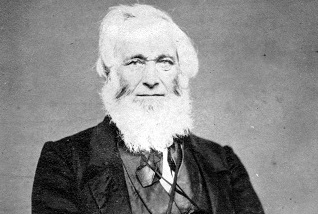
“Right and Rationalization,” by Rev. Dr. Christopher P. Momany
Recent years have witnessed much understandable examination of the slavery-laced legacies at several American colleges and universities. There are many reasons for this attention, and a number of these institutions are among the oldest and most prestigious in the land. It is one thing to acknowledge the existence of bondage in early southern higher education. It is quite another thing to confront this reality among the Ivy League. Internal research studies (not all of them embraced by professional historians), student movements, and layers of scholarship invite us to look in the mirror. The evidence is damning, but it might also lead to redemption on the far side of injustice.
The various explorations document the unconscionable entanglement of economic power (often gained at the expense of those in bondage) and previously venerated figures in American higher education. For instance, there were enslaved people on campus who answered to the capricious behavior of revered academicians. An even greater number of people lived in bondage to create the wealth that endowed chairs, built buildings, and bolstered operating funds. However, if we look closer, we will find that this tainted legacy was more than simply an unexamined practice. Some early American teachers of ethics actually employed well-established theories to justify abusive systems.
In the history of modern ethics, 1785 is a watershed year. William Paley published The Principles of Moral and Political Philosophy, and Immanuel Kant released his Groundwork of the Metaphysic of Morals. Paley’s theory expressed an early form of utilitarianism, and personally, he arrived at moderately antislavery conclusions. Kant’s theory became known later as deontology, an approach that stressed the universal value of all people – even though Kant retained strangely racist views. In America, these two competing schools of thought were inverted among the slavery debate. Paley’s form of utilitarianism was embraced by apologists for slavery who insisted they were protecting some greater “benevolence” (a key term for pious powerbrokers). Kant’s categorical imperative drove an abolitionist commitment to equality (and not only in Transcendentalist Boston).
Yale University offers one example worth contemplating. Ezra Stiles brought William Paley’s theological utilitarianism to Yale by 1791, and even though later New Haven thinkers sought distance from aspects of Paley’s ethic, they never managed much of a separation. In the early and middle nineteenth century, Nathaniel William Taylor (Professor of Didactic Theology) made Yale synonymous with a liberalized analysis of the will. One might assume that a stress on agency would lead to antislavery commitments, but such was not the case.
This was perhaps demonstrated most forcefully when Nathaniel William Taylor presided over the “Rhetorical Society” of Yale’s divinity school. In 1842 and during subsequent years, students debated the question: “Does the greatest good of the greatest number justify the further continuance of slavery at the South?” At first the students were reticent about affirming this notion. Yet it is clear that their advisor, Taylor, supported the rationalization. By 1848, Taylor’s utilitarian “logic” prevailed, and the students voted to sustain him in asserting that slavery was some kind of regrettable but acceptable evil.
Utilitarian language became rationale for leaving slavery in place. Theorists conceded that someone had to pay the price for American prosperity. Of course, privileged intellectuals were seldom made to bear the burden. Moreover, Nathaniel William Taylor’s moral flexibility was not that unusual.
Even at a place like the Oberlin Collegiate Institute, often considered an entirely admirable abolitionist colony, the contrast in moral theories between followers of utilitarianism and followers of Kant demonstrates a distinction in fortitude regarding slavery. Late in the 1840s a controversy erupted between Oberlin President Asa Mahan and Professor Charles G. Finney. Mahan embraced a Kant-inspired deontological ethic. Finney, while generally progressive regarding slavery, wavered because of his more utilitarian reasoning.
When fulminating against “rightarianism” (Kant’s deontology) Finney even suggested that there may be circumstances in which slavery is justified! He wrote: “All holding men [sic] in bondage for selfish motives is wrong in itself, but holding men [sic] in bondage in obedience to the law of benevolence is not wrong but right.” Mahan, on the other hand, maintained a remarkable, even courageous, consistency. He insisted that “if, on the ground of accidental circumstances and relations, we consent to a sacrifice of the rights and interests of a solitary individual . . . humanity is thereby degraded in ourselves.”
I do not claim that the link between moral theory and attitudes toward slavery was simple and devoid of nuance. People rarely embrace a theory and then live its demands without qualification. Yet perhaps people do tend to theorize in ways that are consistent with their instincts. Those benefitting from bondage found a lofty (and handy) intellectual justification in utilitarianism. Those inspired by Kant and the universalizing of moral commitment found support for egalitarian impulses. Until we understand the way modern moral theory either confronted or rationalized human bondage, we will not understand the full story among our colleges and universities.
Rev. Dr. Chris Momany is the chaplain and a member of the Department of Philosophy/Religion at Adrian College. He is a graduate of Adrian College, Princeton Theological Seminary, and Drew University. His writing appears in both academic and more accessible publications. Dr. Momany’s current research explores the relationship between antebellum moral philosophy and the antislavery movement.


